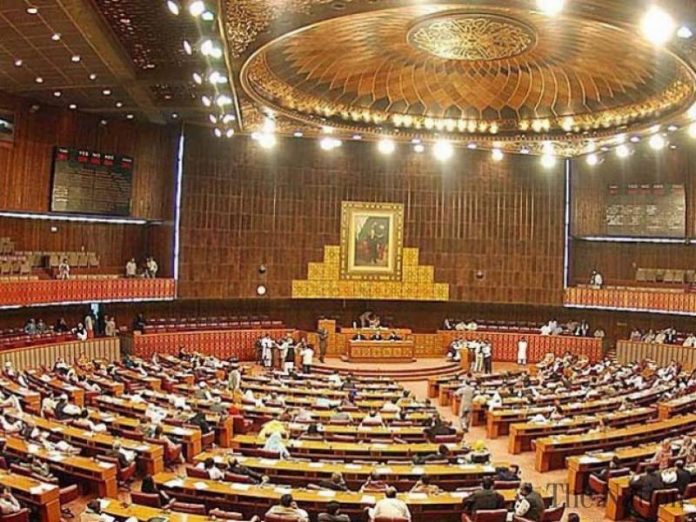ISLAMABAD: The newly levied Regulatory Duty (RD) on selected import items will merely reduce the import bill by $ 500 million in next nine months of the current financial year. Since the major import items are not affected by the recently levied RD, the duty on 47 items will not make a difference in the move of reducing import bill.
The Senate’s Standing Committee on Finance, Revenue and Narcotics, which met on Tuesday with its chairman Saleem Mandviwalla, showed its displeasure over the sudden increase in duty on import items knowing that the same would not reduce the ever-increasing trade deficit. The meeting was held to discuss a single agenda of imposing RD on 731 items by Federal Board of Revenue (FBR).
Submitting reply to the committee’s query regarding the sudden decision of imposing RD on import items, FBR Chairman Tariq Pasha said that purpose of recently-levied duties was to reduce the import bill, provide enabling atmosphere for competition to local manufacturers and further economic growth of the country.
He said during the current financial year, Pakistan has seen a surge in imports. In order to slow down the growth in the import of non-essential items or of the goods whose substitutes are locally produced, the government has imposed RD on such items.
Clarifying that the duty was not imposed on 731 items, as reported in media, Pasha claimed that the duty was introduced on 26 new items while the levy was increased on 21 existing import goods.
An impression has been created that RD has been imposed on 731 items, which is incorrect. This SRO has replaced eight previous SROs of RD, and most of the items that appear in this notification were already subject to RD in the previous SROs.
According to him FBR issued notification SRO 1035(I)/2017 in consultation with the Ministry of Commerce (MoC), which has imposed new RD on 26 items only (137 tariff lines) including new cars (less than 1800 cc), plastic articles, dry fruits, sunglasses, cigarette paper, tobacco, wallpaper etc. Moreover, rates of RD have been increased on 21 imported items only (219 tariff lines). The rates of RD range from 10 per cent to 30 per cent on different items, which are generally consumed by an affluent segment of the society. Pasha claimed that the purpose of these duties is not the generation of revenue but to reduce the import bill of the country.
However, the reply from Pasha could not satisfy majority of members of the committee who questioned rationality behind such a move which would not reduce the rising import bill.
An interesting debate started when PTI Senator Mohsin Aziz and ANP Senator Ilyas Bilour asked officials from FBR and MoC about the strategy behind imposing RD on the import of eggs and cucumber. “How many eggs are being imported? Is someone from ruling party not interested in restricting the import of eggs?” said Mohsin Aziz adding that such items are hardly being imported. He also questioned the imposition of RD on generators.
Despite repeated queries, both FBR and MoC could not justify levying duties on these items. FBR chairman, however, claimed that the RD was imposed on eggs after import of the largely consumed item was reported. An official claimed that value-added products such as cucumber were also restricted.
Senator Ayesha Raza suggested the opposition members of the committee to avoid making political point scoring on egg imports.
Mohsin said both FBR and MoC were not able to explain how the restricted imports are translating into an increase in exports. He also said that issuing SROs and presenting mini-budgets were not justifiable after deliberation and subsequent approval of the annual budget.
Tariq Pasha said that Economic Coordination Committee (ECC) had approved levying RD on the selected items after two separate summaries were moved by MoC and FBR following a number of meetings held at the ministry to rationalize imports.
The FBR chairman was later asked to present prepared breakups of trade data and justification for imposing the duty and submit the same to the committee.




